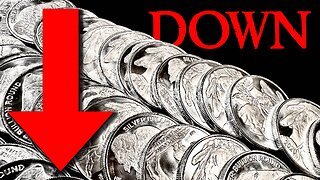Premium Only Content

3 Great Empires of History
The rise and fall of empires has always been a captivating topic in history. These powerful and vast empires have shaped the world we know today. Among the countless empires throughout history, there are three that stand out for their grandeur and impact on humanity – the Roman Empire, the Mongol Empire, and the British Empire.
The Roman Empire is often referred to as one of the greatest empires in world history. It was founded in 27 BCE and lasted for over a millennium until its eventual collapse in 476 CE. At its peak, the Roman Empire covered an extensive territory, including modern-day Europe, parts of Asia, and Northern Africa. Its expansion was fueled by a strong military and an elaborate system of government that allowed for efficient administration and control of its vast territories.
The Romans were known for their advanced engineering and architecture, which is evident in the construction of iconic structures such as the Colosseum and the aqueducts. They also left a lasting legacy in the areas of art, language, law, and religion, which still influence modern society.
Next, we have the Mongol Empire, which emerged in the 13th century and lasted for only around 150 years. However, in this relatively short time, it became the largest contiguous empire in history, stretching from Eastern Europe to the Sea of Japan.
Founded by Genghis Khan, the Mongols were successful conquerors due to their brutal and efficient military tactics. They also had a highly organized government, with a strict hierarchy and a unified legal system. The empire's economy was also driven by the trade routes established through the Silk Road, which allowed for cultural and commercial exchange between Asia and Europe.
The British Empire, on the other hand, was the largest empire in history in terms of land area and population. It reached its peak in the 19th century and covered a quarter of the world's land area, including territories in the Americas, Africa, Asia, and the Pacific.
The British Empire was built through colonization, exploitation, and the use of military force. It also played a significant role in the Industrial Revolution, leading to massive economic growth and technological advancements both within and outside of its territories.
Despite their differences, these empires were all powerful and influential in their own ways. Their legacies can still be seen in today's world, whether it be through language, culture, or political systems. However, with great power often comes great downfall, and all three of these empires eventually declined and fell.
The Roman Empire collapsed due to a combination of factors, including economic turmoil, political corruption, and invasions by barbarian tribes. The Mongol Empire also faced its downfall due to internal conflicts and the inability to sustain its vast territories. The British Empire, although it officially ended in the mid-20th century, is still facing the consequences of its imperialistic actions.
Studying these empires allows us to understand the rise and fall of civilizations and the impact they have had on our world. It also serves as a cautionary tale of the dangers of unchecked power and the importance of learning from history.
In conclusion, the Roman, Mongol, and British Empires were three of the greatest and most influential empires in history. Through their vast territories, cultural influences, and legacies, they have left a lasting impact that can still be felt in today's world. However, their stories also serve as a reminder that no empire is invincible, and history will always repeat itself if we do not learn from it.
-
 LIVE
LIVE
I_Came_With_Fire_Podcast
10 hours agoThe US GOVERNMENT is PLANNING a UAP FALSE FLAG ATTACK
473 watching -
 18:10
18:10
Sideserf Cake Studio
4 hours ago $0.24 earnedIs This the ULTIMATE Cake Smashing Moment?
5.02K -
 12:51
12:51
Misha Petrov
17 hours agoTrump KICKS OUT Zelenskyy After HEATED White House Meeting!
5.18K56 -
 16:39
16:39
Tactical Considerations
1 day ago $0.21 earnedWatchtower Apache Double Stack 1911 Made Me Question Everything?
3.76K -
 16:20
16:20
T-SPLY
5 hours agoCNN Meltdown Over Zelesnky Disrespecting Donald Trump And JD Vance
3.2K9 -
 8:39
8:39
Silver Dragons
22 hours agoGold & Silver Price KEEP DROPPING 👀
2.75K4 -
 1:20:14
1:20:14
TheTapeLibrary
18 hours ago $0.19 earnedThe Strangest Paranormal Case of All Time
1.96K1 -
 13:58
13:58
Chris From The 740
7 hours ago $0.04 earnedOld School Icon, New School Features – The Influencer X Hits The Mark!
1.29K -
 30:31
30:31
SB Mowing
1 day agoI brought in REINFORCEMENTS when I saw the state of this yard
154K52 -
 1:59:13
1:59:13
Adam Carolla
2 days agoBeing Republican & in Hollywood +Kelsey Grammer on Fatherhood + Peter Berg's Super Bowl Commercials
100K45